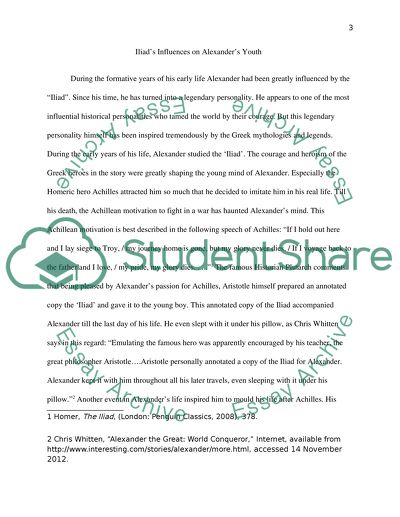Cite this document
(“How the epic poem Iliad influenced Alexander the Great Research Paper”, n.d.)
Retrieved from https://studentshare.org/history/1461203-how-the-epic-poem-iliad-influenced-alexander-the
Retrieved from https://studentshare.org/history/1461203-how-the-epic-poem-iliad-influenced-alexander-the
(How the Epic Poem Iliad Influenced Alexander the Great Research Paper)
https://studentshare.org/history/1461203-how-the-epic-poem-iliad-influenced-alexander-the.
https://studentshare.org/history/1461203-how-the-epic-poem-iliad-influenced-alexander-the.
“How the Epic Poem Iliad Influenced Alexander the Great Research Paper”, n.d. https://studentshare.org/history/1461203-how-the-epic-poem-iliad-influenced-alexander-the.


